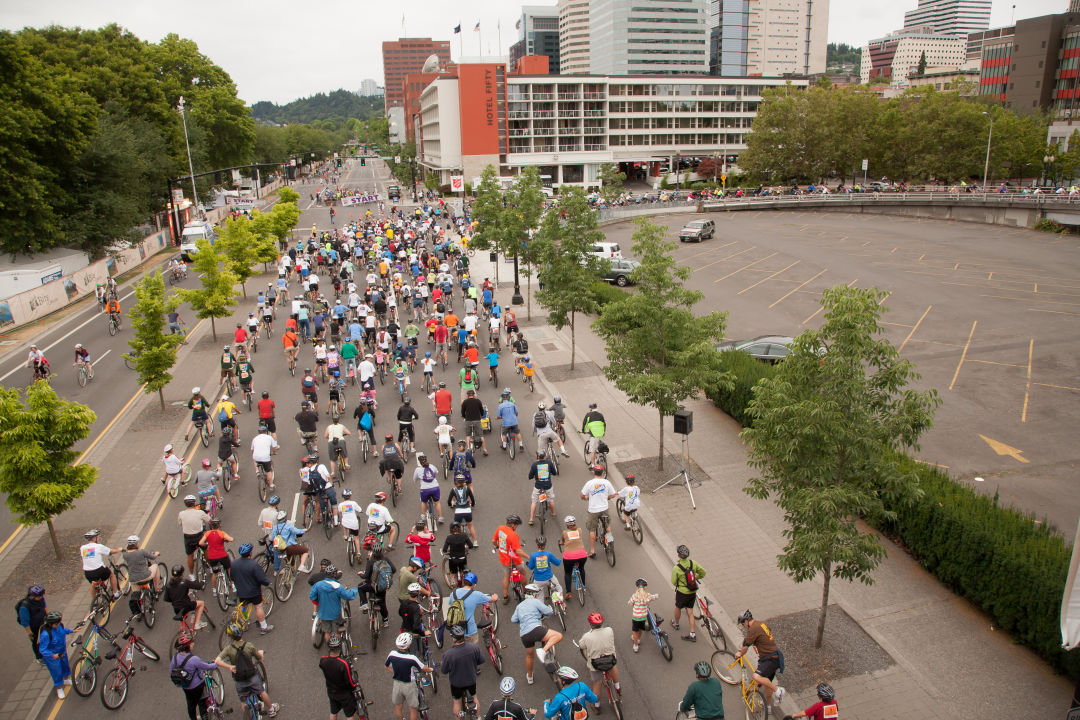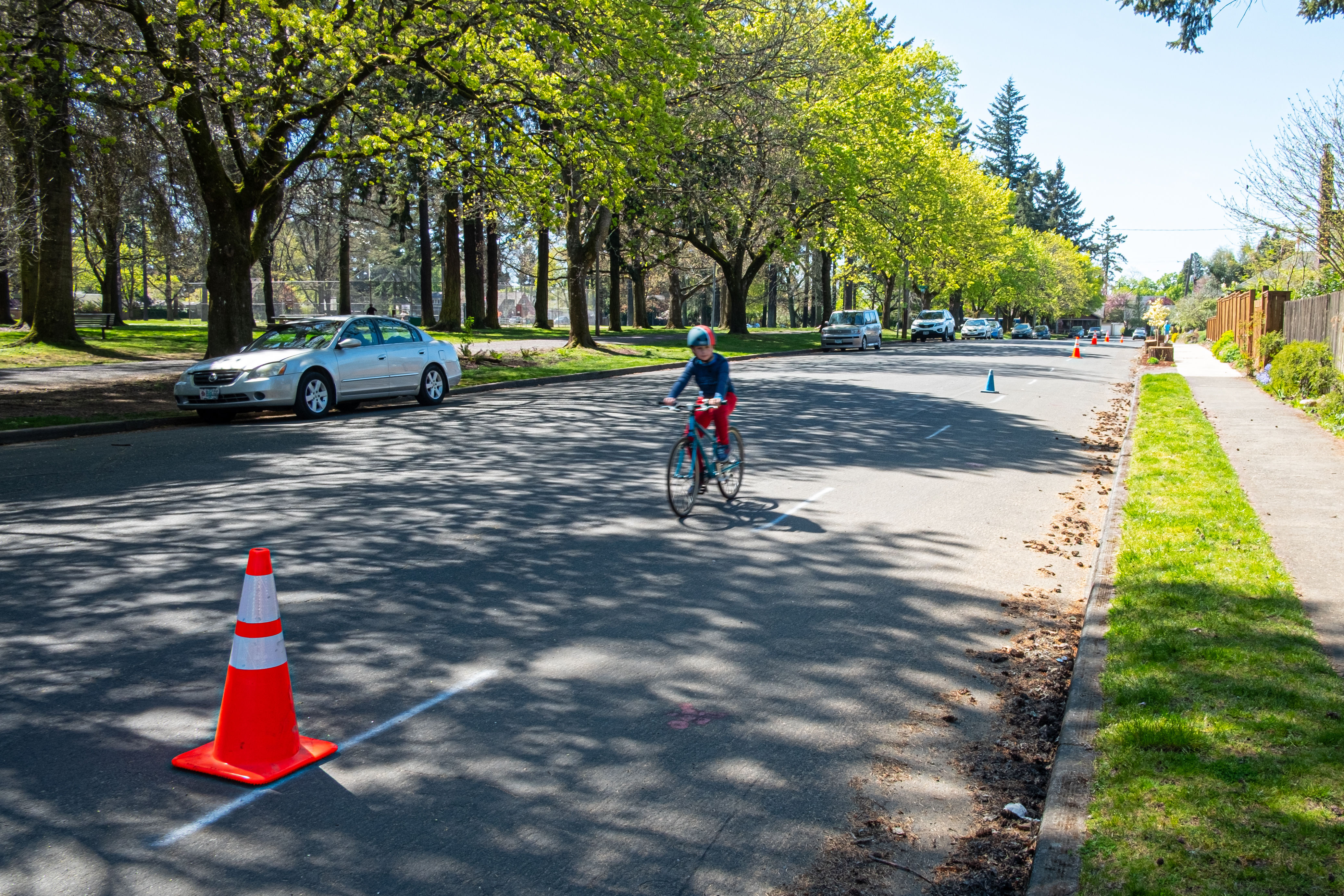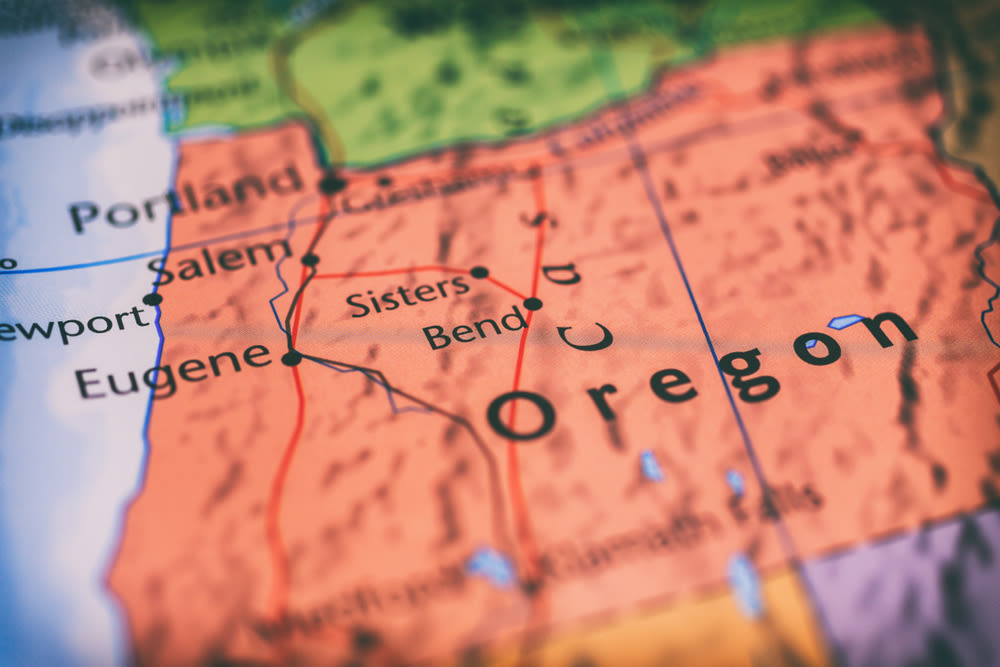The Portland Bike Boom Is Real

People in Portland love their bikes. Sales are booming at local shops, but supplies are low. How long can this keep up?
Image: Bob Pool/Shutterstock
Jigsaw puzzles have had their moment. Sourdough starters, too. But the enduring purchase of the pandemic era appears to be a bicycle.
There’s always been a healthy bicycle market in Portland, home to the largest population of bike commuters in the United States, per the New York Times. But prepandemic, there were signs that the market here might be oversaturated, with six local bike retailers announcing closures since the start of 2020 alone.
Then came coronavirus—an unmitigated health and economic disaster, no question, but one that has meant a nearly unprecedented boom in business for bike stores in Portland and beyond, with nationwide sales of bikes, equipment, and repair services in March 2020 nearly twice what they were in March 2019, according to the Times.
“March, April, May—we’ve been up about 60 percent each month,” says Mike Olson, owner of Bike Gallery, one of the city’s largest and oldest bike retailers, with six metro-area locations. “The demand doesn’t seem to end. Now our biggest concerns are just getting bikes. They are really hard to get.”
The bike boom is born of a perfect storm. The weather is getting warmer, and people want to be outside, for starters. Bicycles lend themselves to physical distancing, and Portland’s made that easier with the decision to close off its network of neighborhood greenways to all but local traffic, to make more room for cyclists, pedestrians, and joggers.
Gyms are still closed in the metro area (though can reopen in most of the rest of Oregon). Taking a walk is great but keeps you more tethered to a certain radius. And traditional means of public transportation—buses, MAX trains, trams—suddenly seem dicey, given the proximity to other people in an enclosed space.
It all adds up to a run on bikes, one that Olson says took his shop by surprise. In mid-March, when the shutdowns first hit, he projected about a 30 percent loss in sales and furloughed some of his employees. Instead, he’s had to hire them all back, he says, and is actively recruiting for more employees.
With demand so high, it’s pushed supply to the limit and meant weeks-long waits for bikes to come in, especially because many bikes are assembled in and around Wuhan, the epicenter of the first coronavirus outbreak in China.
Low- and midrange bikes are in very short supply, Olson says, though bikes in the $1,000-and-up range are—predictably—more available.
“What we are finding is that when people they realize they can’t get a bike, they are buying what we have,” Olson says. “One guy came looking for a $500 bike and bought a $2,200 bike.”
The bike-buying experience is different, too. Calling in advance to check on inventory is advisable, but it’s hard to get through—at River City Bicycles, with stores on SE Belmont and SE Martin Luther King Jr. Boulevard, employees say the phones are constantly ringing. Some stores are letting in one family or customer per employee, and some have required masks for both staff and customers. There’s no more taking demo bikes out for a spin. Instead, many people are researching online, ordering through the store, and arriving to pick up an assembled bike.
“We have about 10,000 bikes on order,” Olson says. ‘We are getting a couple hundred every week. If you go to one of our stores, it is empty. I mean, there are boxes, and a lot of empty racks where bikes would normally be. We haven’t been able to keep the bikes built. They are gone as soon as we get them.”
So how long can this keep up?
It’s anyone's guess, but experts say we’re at least a year away from a coronavirus vaccine.
“We think that people are going to keep feeling concerned about catching this virus for quite a while until there is a vaccine or some kind of a cure,” Olson says. “We expect this demand to go through the holiday season, because it is a nice fit for the current situation.”




